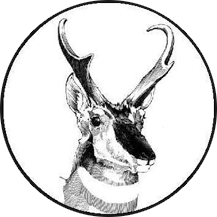Please join us June 7-11 2024 for the 103rd Annual Meeting of the American Society of Mammalogists! The conference will be held in person at the University of Colorado Boulder (home of the Buffs!) in Colorado.
Learn about the latest advances in the study of mammals and interact with researchers and educators specializing in these fascinating animals. The scientific program will include contributed oral and poster presentations as well as plenary speakers, symposia, and workshops. A full social agenda also is planned including an opening social, the annual Run-for-Research, poster socials, student social, auction, and closing social and awards ceremony.
To top it all off, the ASM will be joined by the North American Pika Consortium (NAPC) who will host pika-related talks, posters, symposia, and working group meetings at the Boulder meeting. The NAPC is an organization of researchers, educators, and conservationists interested in North American pikas (Ochotona princeps and O. collaris). Their efforts focus on understanding pika ecology through research, monitoring, outreach, participatory science, and collaboration. They also offer a community for engagement and collaboration around pikas, including several working groups focused on specific areas.
The ASM strives to recognize and account for historical and present day inequalities from which we have benefited or in which we have participated. As part of this we acknowledge that the 103rd meeting of the American Society of Mammalogists is being held on the land and territories of Indigenous peoples. CU Boulder also recognizes that it’s campus today sits on the ancestral homelands of the Arapaho, Cheyenne, Ute and many other Native American nations (see CU Boulder’s full land acknowledgement here). We recognize that the science of mammalogy and our understanding of Colorado mammals is less rich because of Indigenous voices that have been excluded or lost, and reaffirm our commitment to righting the wrongs of our colonial past and present. Please take a moment to consider what role you can play in increasing inclusion in our science.
We hope you will join us to learn about the latest advances in the study of mammals and interact with researchers and educators specializing in these fascinating animals. Come celebrate this important milestone in modern mammalogy!
The registration link is here
